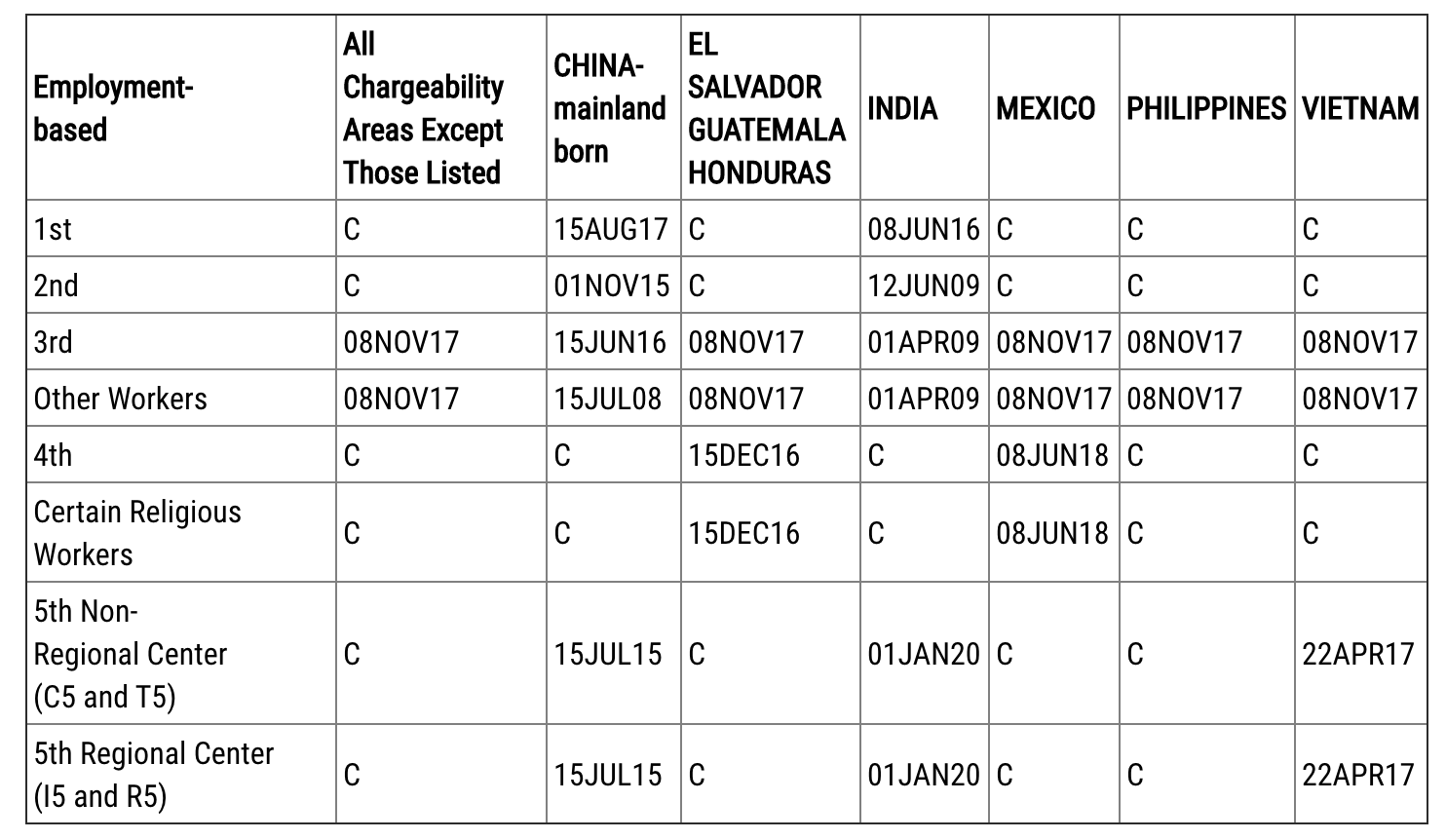The Department of State has released the visa bulletin for July 2020 outlining the availability of immigrant visa numbers for the upcoming month.
NOTE: Adjustment of Status Filing Charts July 2020
For Family-Sponsored Filings:In the F2A category, there is a cutoff date on the Dates for Filing chart. However, the category is “current” on the Final Action Dates chart. This means that applicants in the F2A category may file using the Final Action Dates chart for July 2020.
For all the other family-sponsored preference categories, you must use the Dates for Filing chart in the Department of State Visa Bulletin for July 2020.
For Employment-Based Preference Filings:For all employment-based preference categories, you must use the Final Action Dates chart in the Department of State Visa Bulletin for July 2020.
July Visa Bulletin Cutoff Dates
Employment Based Categories
According to the Department of State’s July Visa Bulletin, the following cutoff dates will apply for the issuance of an immigrant visa for employment-based categories:
- EB-1: All countries remain current during the month of July except for China and India. EB-1 China will advance by one week to August 22, 2017, while EB-1 India will advance by 11 months to May 8, 2017.
- EB-2: All countries except EB-2 China and India remain current. EB-2 China will advance by one week to November 8, 2015, and EB-2 India will advance by just under four weeks to July 8, 2009.
- EB-3 Professional and Skilled Workers: All countries except EB-3 India and China will advance by almost five months to April 15, 2018. Cutoff dates for EB-3 China will advance by one week to June 22, 2016, and for India by two months to June 1, 2009.
- EB-5: EB-5 India will become current, joining all other countries except for EB-5 China and Vietnam. China’s cutoff date will advance by one week to July 22, 2015, while Vietnam’s cutoff date will advance by three weeks to May 15, 2017.
 Visa Lawyer Blog
Visa Lawyer Blog













